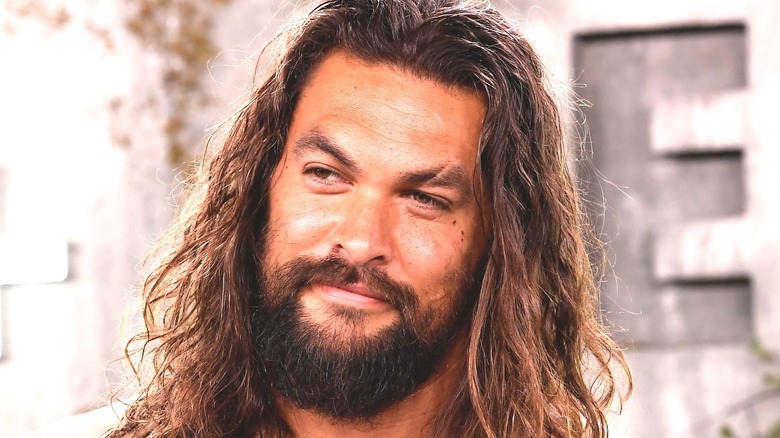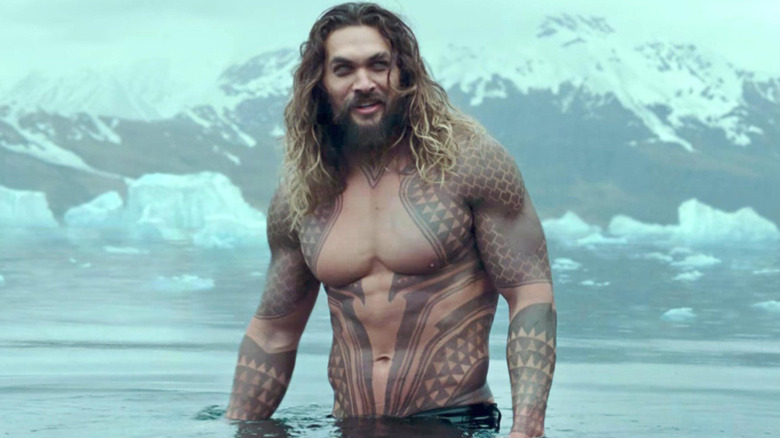Jason Momoa Has A Thoughtful Response To Critics Of Superhero Movies
Here's an uncontroversial statement: superhero movies are insanely popular. Collectively, the 10 highest-grossing films in the DC Comics Extended Universe have totaled more than $5.6 billion worldwide. Of those, the top earning movie is none other than 2018's "Aquaman," which has raked in more than $1.14 billion (via The Numbers). And the MCU has done even better than that — the top seven highest-grossing superhero movies, to date, have all come from Marvel (also via The Numbers).
However, you can't reach such a massive level of success without gaining some critics to go along with it. Practically ever since the first "Iron Man" debuted in 2008, some of Hollywood's biggest names have complained about the over-abundance of spandex-wearing heroes on movie screens. Most notably, in a 2019 op-ed for The New York Times, Martin Scorsese famously argued that superhero movies aren't cinema, just to give one example.
Thankfully, it seems that superhero movies have at least one staunch defender, and that is "Aquaman" star Jason Momoa. In a recent interview with The New York Times, Momoa gave his thoughts on why superhero movies have become such an essential part of the Hollywood ecosystem, and why that's a good thing for artists and creators of all types.
Superhero movies are a lot more vital than you might think
Jason Momoa started off his answer by pointing out that all art is subjective, and with all types of art, some titles are considered "cool" while others are scorned for being mass-produced, regardless of whether the latter has genuine value. "It's like how people say that music is poppy and this music cool," Momoa said. "But you know how hard it is just to get your music out there for people to hear? It's all subjective. I try not to pick on anything. So, yeah, superhero movies are bubble gum, but they're like Greek mythology: They have good and evil and heartbreaking moments."
Then, there's all the amazing skill that goes into making big-budget superhero movies, throughout every level of production. Even when you look beyond the big-name directors and stars, superhero movies are made by hundreds of special effects experts, makeup experts, stunt workers, set decorators, and other personnel, whom Momoa credits as invaluable. He argues that by denouncing superhero cinema, "You're taking away other art forms if you stop making [superhero movies]," he explains. "You're taking away visual effects, you're taking away what you can do with makeup."
Finally, while some treat superhero movies as the entertainment equivalent of empty calories, that ignores the important messages that such movies put out there to massive audiences, like how Momoa's "Aquaman" addresses pollution. "I have a vision for the whole totality of 'Aquaman.' There are environmental issues that I get to put into it. So while you're going, 'Oh yeah, it's just this popcorn movie,' I'm like, 'Well, I get to open people's eyes to things that are important to me.'"
So, there you have it. Superhero movies are a lot deeper — and more important, on an artistic level — than their critics like to admit, according to Aquaman.

